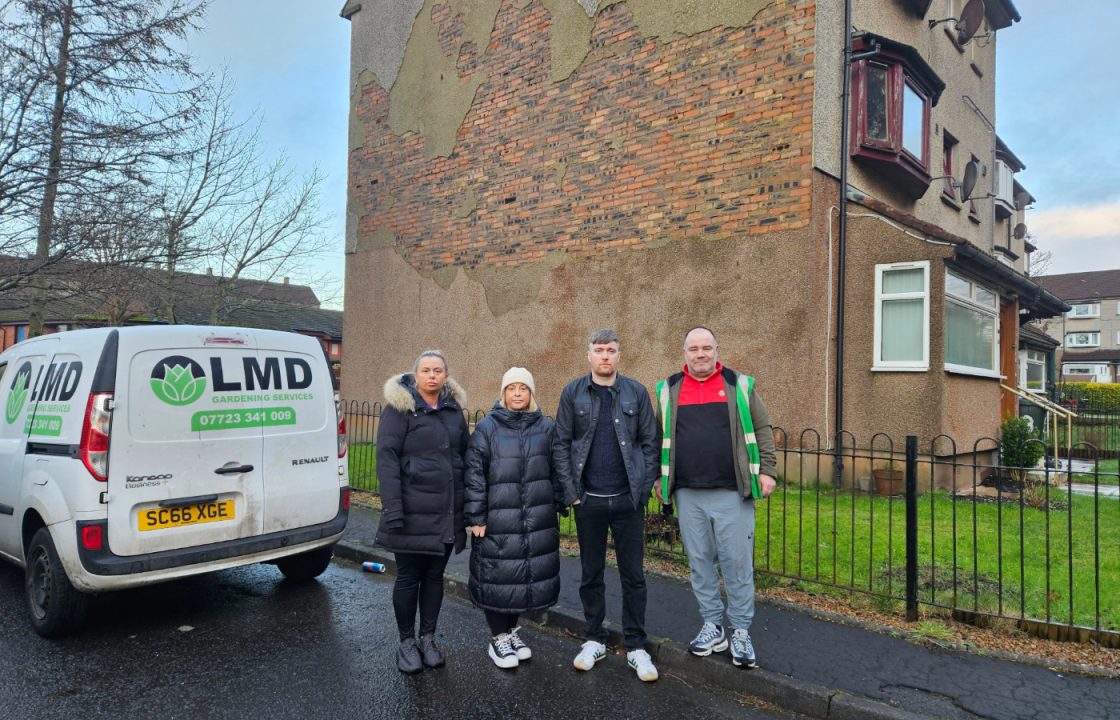Councils should have new powers over private landlords so they can make homes more energy efficient, Glasgow SNP councillors have claimed.
Two senior members of the city’s SNP group, Cllr Ruairi Kelly and Cllr Kenny McLean, want to see rules around Scottish Government grants relaxed to aid potentially thousands of households.
They have written to Scottish Ministers to highlight how the current situation can be a barrier to addressing fuel poverty.
Currently, private landlords with three or more properties are classed as businesses and cannot access an Energy Efficient Scotland (EES) fund — which supports measures such as the installation of wall insulation.
While, the councillors said, many landlords are unable or unwilling to shell out the upfront costs for upgrades.
They warned this is impacting tenants, especially in areas of multiple deprivation, and neighbouring properties in four, six and eight-in-a-block flats, where improvement work is stalling due to issues with landlords.
The councillors want local authorities to be able to compel landlords holding up EES-supported work to compulsorily carry it out, with costs received when the properties are sold.
They would also like to see more flexibility about the criteria for private landlord properties.
Cllr McLean, city convener for housing, said: “The requirement for landlords to pay upfront is a barrier to getting work to improve homes completed.
“We would support ministers making changes which allow the council to compulsorily carry out this work and recover the costs when the property is sold.
“This is similar to what already happens with emergency repairs. We get the work done and build recouping the cost into the landlord’s deeds.”
Around 11,000 Glasgow homes have been improved with almost £40m EES support over the past decade.
Work includes wall insulation and re-rendering to make properties more energy efficient.
Ruairi Kelly, city convener for neighbourhoods, represents the Easterhouse area where, he said, many properties fall outside the scope of the fund.
He added Easterhouse is one of the areas with the highest levels of multiple deprivation in Scotland and a lot of private tenants include refugees struggling for income.
“We’re not talking about landlords in communities like Easterhouse getting off the hook for the condition of their properties or for their refusal to invest in them,” Cllr Kelly said.
“We’re saying that consideration must be given to the sheer numbers of private rented flats in Glasgow, the needs of the tenants and the fact that the current restrictions can mean that adjoining homes can’t get work done.”
Dennis Docherty, from Easterhouse-based Denmilne Action Group, said: “Those of us who own our own homes are being prevented from making improvements because of private landlords not wanting to invest in their properties.
“It’s the people in those houses, and the rest of us who live here, who are being impacted and it’s not fair that communities like ours are then unable to access this support.”
He said the action group wants to make sure people are “living in warm homes and help them keep down their energy bills”.
A Scottish Government spokesman said it continues to provide help with “the upfront costs of improving energy efficiency for private landlords across Scotland through our Private Rented Sector Loan scheme”.
“Where it will help fuel poor households to reduce their bills, we provide additional targeted help for some private landlords. Most landlords own fewer than three rental properties.
“Despite pressures on public spending we have maintained our investment in making homes warmer and less expensive to heat for fuel poor households in 2024/5.”
He added: “If anyone is of the view that further powers are needed to support action in this area, we would encourage them to respond to our current consultation on proposals for a Heat in Buildings Bill.”
Follow STV News on WhatsApp
Scan the QR code on your mobile device for all the latest news from around the country


 LDRS
LDRS

























